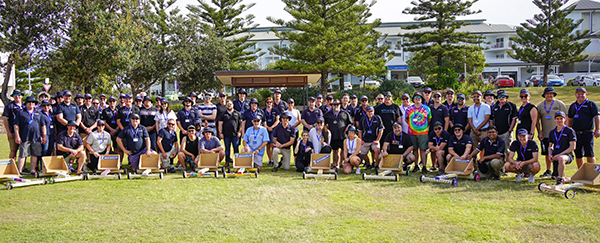Conveying A Better Way Forward
Article published in Australian Bulk Handling Review.
ABHR spoke with the Fenner Conveyors’ managing director to learn more about company’s strategy moving forward.
The past few years have been critical for Fenner Conveyors. The COVID-19 pandemic put extreme strain on global supply chains and demanded new ways of doing business, highlighting the value of local manufacturing.
Fenner managing director Graham Lenz told ABHR that, after a milestone year, the business assessed what needed to be done to ensure it could continue growing in the long term.
Key to this goal is Fenner adopting an ‘all-sustainable’ approach, as part of the Michelin Group’s overall commitment to finding the best balance between people, the planet and economic and financial performance.
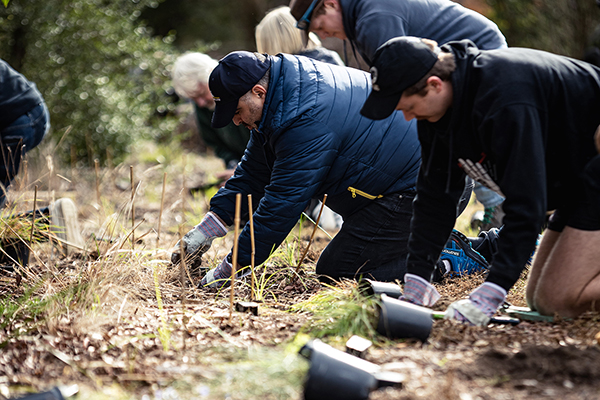
Planet
Lenz said Fenner is working to achieve carbon neutrality across the entire business by 2050 and has support from the Michelin Group to make that goal a reality.
“The first step we’ve taken is to measure our emissions,” he said. “Now that we know that, we can benchmark it and take strategies into account across all of our business units, including our supply chains.
“We want to take an approach that builds a circular economy, which provides benefits for both ourselves and our customers.
“Integrating sustainable materials and providing energy efficient products helps lower emissions.”
Fenner is also modernising its facilities into future factories, while investing into green energy to help achieve carbon neutrality ahead of schedule.
The company’s engineering facilities in New South Wales are already mostly powered by solar energy, and after years of success the company is ready to bring that technology to its manufacturing locations, investing a further $25 million into its Western Australian facility.
New processes and equipment will allow the company to recycle parts of its belts, reverting the chemistry into that of the parent belts.
Lenz said the facility also uses state-of-the-art Siempelkamp presses, providing world-class manufacturing that uses relatively little energy.
“We’re looking across all parts of the manufacturing process to find ways of reducing emissions,” he said. “A great example is using Michelin’s natural rubber sources that they have made available to us.
“There are also parts that underpin the development of more efficient products, like our next generation of compounds that are abrasion-, cut- and gouge-resistant.
“Tougher belts that are higher quality need to be replaced less. If the bottom cover has a low rolling resistant compound, then less power is needed to drive the conveyor.”
Profit
Digitalisation plays a large part in Fenner’s sustainability ambitions. In addition to its aim of becoming a data driven business, the company uses the Internet of Things to improve its technological offering through its “iBelt Intelligent Conveying” monitoring systems.
Its online thickness testing, known as ‘BeltGauge’, allows Fenner to monitor the thickness of a customer’s belt in real-time without stopping the conveyor, helping with preventive maintenance and early intervention. This led to the creation of the ‘BeltTag’ system.
Lenz said the sheer size of overland conveyor belts makes it difficult to return a belt to a certain position.
“BeltTag is a digital solution to maximise an operation’s value,” he said. “It ensures the conveyor stops at the right position for maintenance, saving time and energy.
“All of this data goes through our DigitalHub portal, allowing customers to access and implement real time conveyor monitoring and solutions.
“The world is changing fast, just look at everything that has happened since the end of 2019. If you’re not innovating, you’re going backwards.”
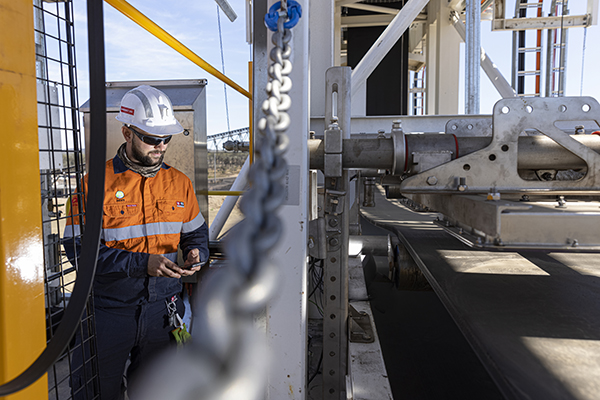
People
Fenner’s people are a huge part of its success and central to its ability to deliver to our customer’s needs. Lenz said one of the major lessons the company has learnt in recent few years is that people are transportable, and there is an expectation on all companies to have a comfortable landing area for them.
“We need to understand the needs of our people and tailor our business around them,” he said. “The world is changing fast, so to be an employer of choice we have to recognise the talents within our business while tracking those outside it.”
“We make sure our team are trained and have access to the best equipment and technology out there. We also want to make sure we’re creating a workspace that’s positive and embraces inclusion.
“There has been a lot of hard work across the past two years to create opportunities for women and more diverse range of team members.”
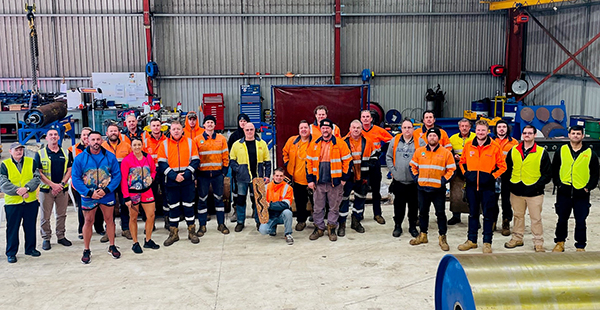
Fenner’s Registered Training Organisation has helped recruit and develop more than 1000 new trainees from around the country. The business provides training for local communities and then offers them opportunities across Australia and the world.
The company’s national branch network has led the way, consulting with locals to make sure Fenner is giving back to the community. It has also taken active steps on its reconciliation journey for Aboriginal and Torres Strait Islander communities.
Lenz said Fenner has learned a lot from 2022 and wants to realign itself to make clear career pathways to grow and develop talent through the diverse engineering, service and manufacturing organisation.
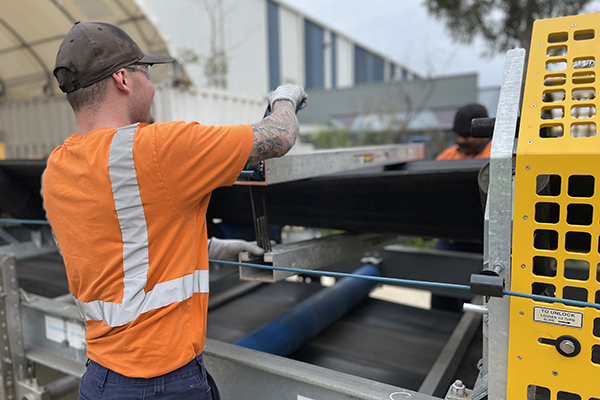
“Bring on 2023,” he said. “We’re going to take our all-sustainable strategy for the Group and use it to empower our team and drive results for our customers. “Open communication is key to that, and we need to provide the tools to enable this to happen.
“The world is changing fast – sometimes that can be scary. As it changes, agile and sustainable companies can really make a difference.”
